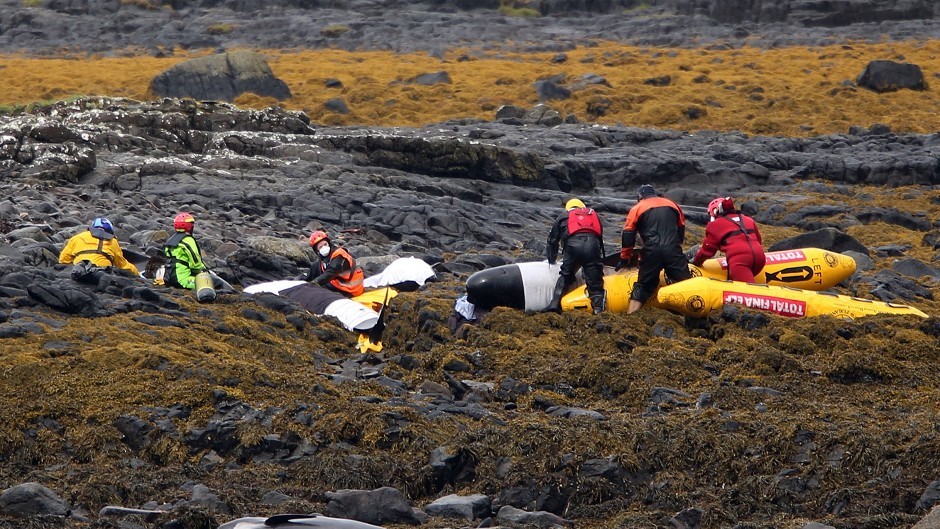A group of pilot whales which stranded on Skye appear to have left the area.
A check of the coastline yesterday by the British Divers Marine Life Rescue showed no sign of the creatures which sparked a two-day rescue attempt.
The emergency started on Monday when a pod of 21 whales stranded in Brogaig Bay, near Staffin Island.
A total of 18 were refloated and guided back to sea.
Among the three dead whales was a pregnant female, which had to be euthanised after its calf died.
However later in the day, it emerged that some of the refloated animals had beached on Staffin Island itself.
By the time BDMLR arrived, four were dead, with another nine found alive.
Two more had to be euthanised to end their suffering.
Of the remaining seven whales, one remained in the shallows and then went off out of view.
By 7.45pm, five were successfully refloated using inflatable pontoons. The remaining mammal took longer to refloat.
Post-mortem examinations will now be carried out on the bodies of the dead whales.
A BMDLR spokeswoman said: “All refloated animals moved off and out of sight of numerous people monitoring their progress.”
The spokesman said that the whales were swimming strongly and it was hoped they made it to open water.
He added: “This has not been the easiest of rescues and the dedication and actions of the BDMLR volunteers have received praise from grateful members of the public all over the world.
“Many thanks to all who have been involved in this rescue – BDMLR volunteers, vets, MCA, Scottish Marine Animal Strandings Scheme, police, Marine Scotland and the many, many locals who have been at the heart of activity.”
Meanwhile, Environment Secretary Richard Lochhead has called for more research into mass whale strandings.
Mr Lochhead, who was at a European Union event, said: “The pictures of up to 21 pilot whales stranded at Staffin on the Isle of Skye yesterday were particularly upsetting to many Scots, who are well known for their love of animals.”
He added: “Thankfully mass strandings such as this are rare in Scotland as they are in many countries across Europe. That is why I am calling for research into this issue to be co-ordinated internationally and taken forward at an EU level.
“International research could benefit all countries with a coastline and ensure that we are doing our upmost to help protect the species that call our seas home.”
